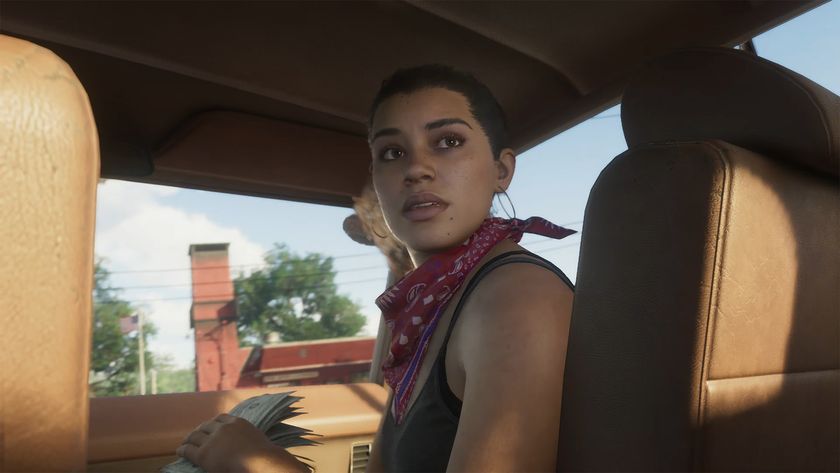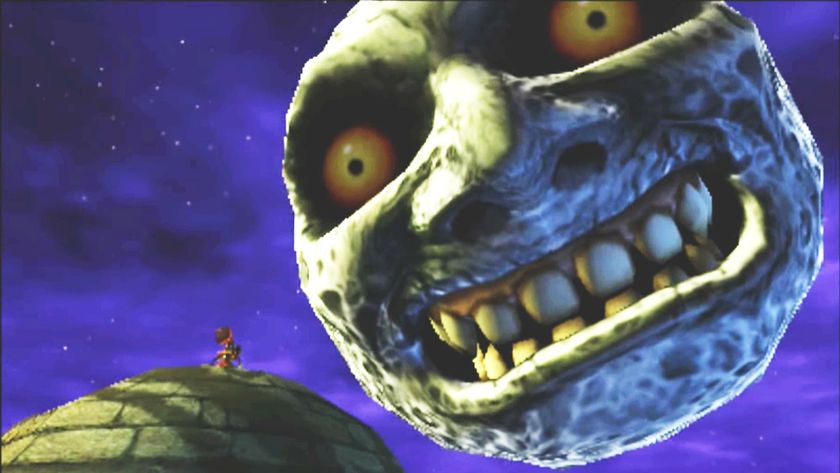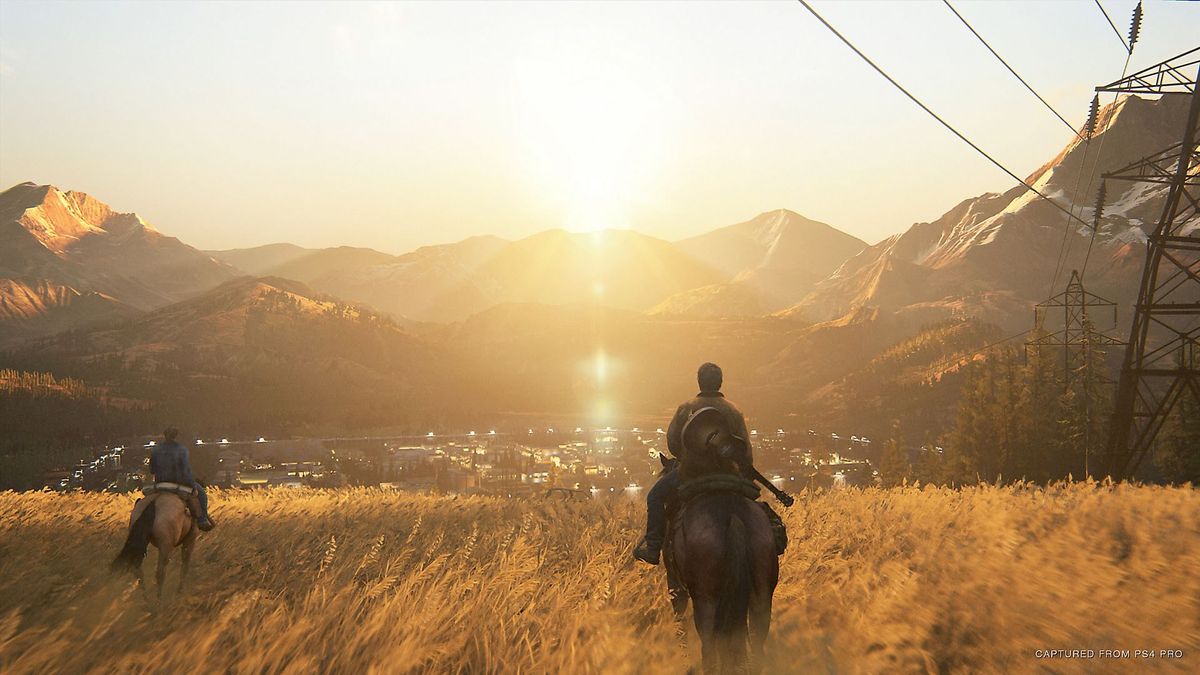
In the videos introducing each of The Last of Us Part 2 Remastered's three 'Lost Levels', game director Neil Druckmann goes to great lengths to remind us that these are rough, unfinished parts of the game, which, once cut, were never intended to be seen by anyone outside of Naughty Dog. But in playing through them, I was pleasantly surprised by how complete they could feel, and even more surprised by the candor with which the developers were prepared to discuss their work and the decisions behind it.
The Lost Levels won't take you long to experience. The three slices can be completed in around 30 minutes, and offer far more in terms of world-building than in any sense of narrative, despite Naughty Dog's spoiler warnings. Each level offers a new bit of detail; the first, set in Jackson, lacks facial animation and voice acting; the second, in the Seattle sewers, starts to delve further into puzzles and storytelling; the third, the Boar Hunt, features full voice acting, survival combat, and cinematics.
The final level, the Hunt, was cut very late in development. Positioned narratively after Ellie's return from Seattle, it's an attempt to unpack her trauma as she attempts to get back to normal life. But what interests me most isn't the parts of the story that we didn't get to see, but why we didn't get to see them. During the Lost Levels, Naughty Dog staff explain their decision making, and during the Boar Hunt lead game designer Banun Idris weighs in via developer commentary to explain the difficulties the team faced in their attempts to perfect it. They outline how the level changed substantially in scope and scale as they struggled to refine it, outlining how it changed, how it fit the story, and why it was eventually cut.
It's the kind of insight that's nearly unprecedented in this industry, where secrecy is key and leaks are industry-defining news. For a game like The Last of Us Part 2, it's rare that we ever get this level of look behind the curtain, and the scenes that Naughty Dog has deigned to show us here are all relatively well-built. These aren't 'greybox' testing environments but fully-fledged, playable experiences. While they might be missing the spit and polish of the final product, they remain accessible, story-relevant parts of the experience that expand on the world of The Last of Us. Their absence from the main game speaks to the kind of decision making that we simply don't get to see.
Pipe down
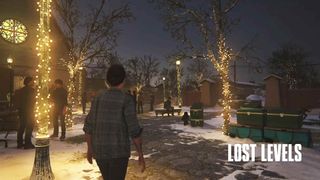
Boar Hunt is clearly the most fully-realized Lost Level, but while it offers extra context to Ellie's story, it's not the most interesting insight into the game's development. That belongs to the Seattle Sewers level, where game designer Pete Ellis explains in impressive detail how Naughty Dog thinks about how it shepherds its players through a level.
In this cut section of the sewers, Ellie is forced to contend with broken ladders, locked doors, and torrential flows of water that cut off her path. Eventually, her escape forces her through a series of ever-shrinking pipes, crawling on her belly through sewer muck. But according to Ellis, getting the player to find their way through those pipes is a gradual process, one that requires them to acknowledge a space so small they might not have thought it was even part of the game. Getting them there requires pointed camera work, or breadcrumb trails that entice players in a certain direction in order to force them away in another. Naughty Dog placed trinkets, adjusted water levels, and left red herrings to craft the sewers, adjusting to playtester feedback.
Uncut content
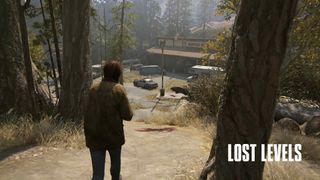
It's no surprise that this kind of work is done, but I'm still shocked by how open Ellis is prepared to be about the player psychology at play here. And that cuts to the heart of why the Lost Levels are such an important part of The Last of Us 2 Remastered - not because they're a concrete selling point in their own right, but because they offer unprecedented transparency around how these games are built.
Sign up to the 12DOVE Newsletter
Weekly digests, tales from the communities you love, and more
That lack of transparency is a recurring issue. In the past 18 months, events like the hacking of GTA 6 and Insomniac showed off greybox development in detail at a scale we've never seen before for games of this kind of scope. In doing so, they showed how little the average player understands about the process of game development, and what games like Marvel's Wolverine actually look like when they're years away from release. Elsewhere, Resident Evil 4 Remake found itself at the heart of a debate about player signposting, evidence of the amount of work that has to go into showing players of all skill levels how to progress.
That kind of signposting is unlikely to ever go away. Developers invest too much into creating their games to risk players coming away dissatisfied because they got lost. But while the Lost Levels are unlikely to be the blockbuster takeaway from this remaster - that honor is likely to go to the No Return roguelike mode - they might just prove this game's most important legacy. Naughty Dog has offered the kind of transparency that is rarely ever seen in game development, and though its efforts here are likely to go largely unnoticed in the grand scheme of things, this peek behind the curtain might offer the wider industry the push it needs to start trusting its players with more information about how and why the games they love are made a certain way.
The Last of Us 2 offers a "smorgasbord" of new additions in its attempt to bring players back.

I'm GamesRadar's news editor, working with the team to deliver breaking news from across the industry. I started my journalistic career while getting my degree in English Literature at the University of Warwick, where I also worked as Games Editor on the student newspaper, The Boar. Since then, I've run the news sections at PCGamesN and Kotaku UK, and also regularly contributed to PC Gamer. As you might be able to tell, PC is my platform of choice, so you can regularly find me playing League of Legends or Steam's latest indie hit.
Most Popular





